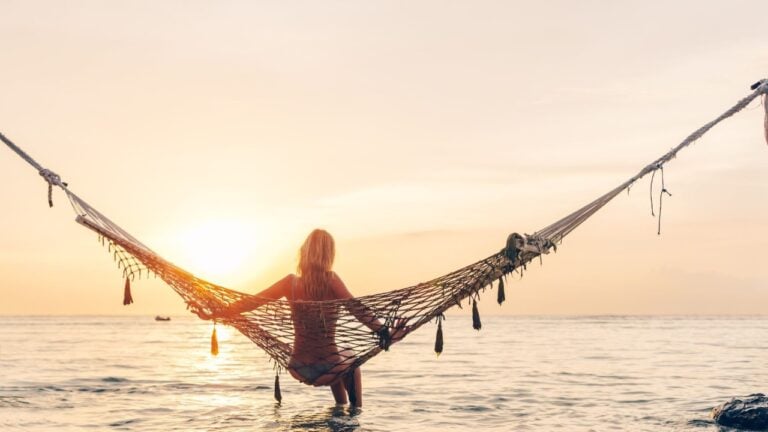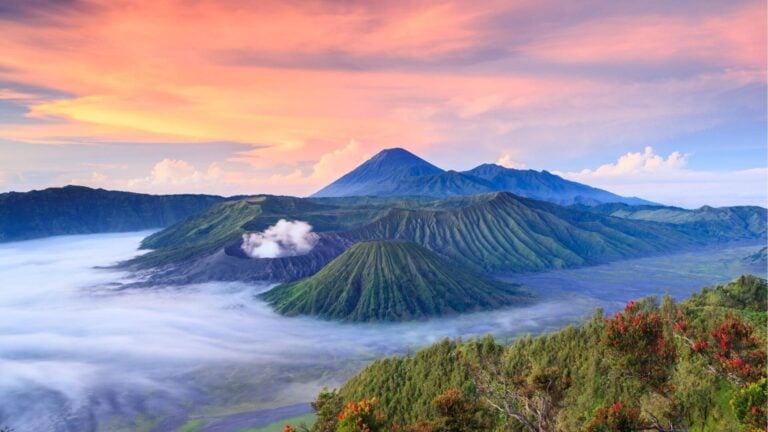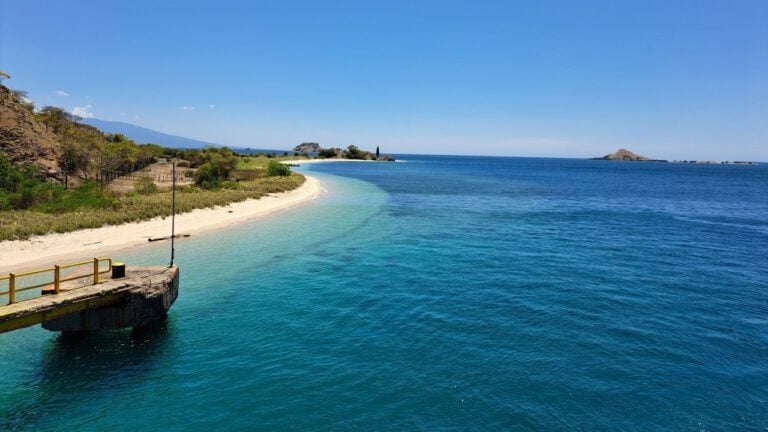Indonesia, with its rich tapestry of cultures, breathtaking landscapes, and unparalleled biodiversity, has long been a beacon for luxury travelers. As we step into 2025 and look beyond, the luxury travel sector in Indonesia is poised for transformative growth, driven by emerging destinations, sustainable practices, technological advancements, and a renewed focus on personalized experiences.
1. Introduction
1.1 Overview of Indonesia’s Luxury Travel Landscape
Indonesia’s allure as a luxury destination stems from its diverse offerings—from the serene beaches of Bali to the untouched jungles of Sumatra. Over the past decade, the country has seen a surge in high-end tourism, with travelers seeking exclusive experiences that blend comfort with authenticity. The luxury segment has become a significant contributor to Indonesia’s tourism revenue, attracting discerning visitors from around the globe.
1.2 Significance of 2025 and Beyond in the Tourism Sector
The year 2025 marks a pivotal point for Indonesia’s tourism industry. With global travel rebounding post-pandemic, there’s an increased demand for unique and opulent experiences. Indonesia is strategically positioning itself to cater to this demand, focusing on sustainable development, infrastructure enhancement, and the promotion of lesser-known locales to ensure a holistic and enriching experience for luxury travelers.
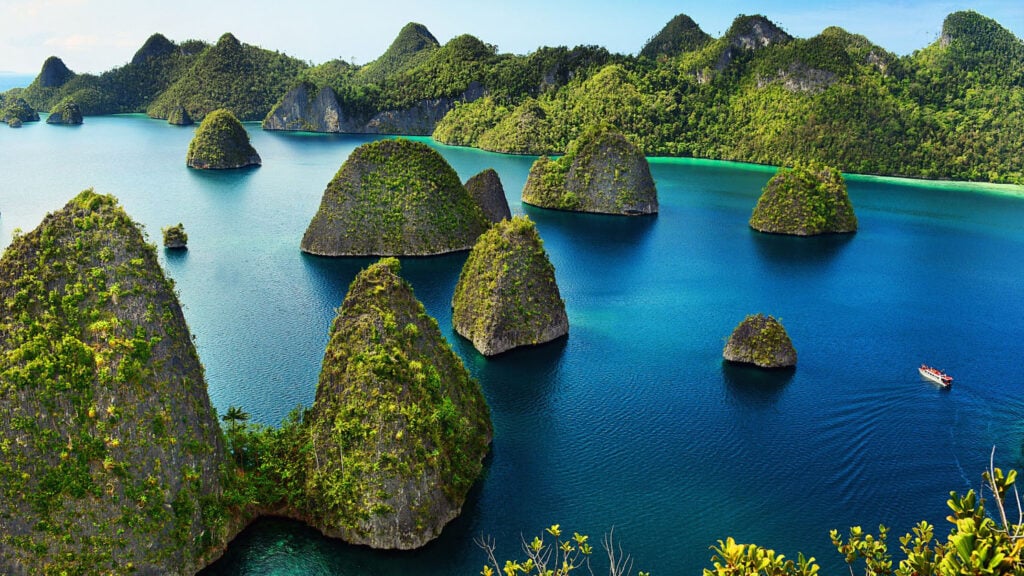
2. Emerging Luxury Destinations
2.1 Lesser-Known Islands Gaining Popularity
While Bali remains synonymous with luxury, travelers are now venturing to Indonesia’s lesser-explored islands. Lombok, with its pristine beaches and the majestic Mount Rinjani, offers secluded luxury resorts that promise tranquility away from the crowds. The Gili Islands, a trio of idyllic islets, provide upscale accommodations amidst crystal-clear waters, making them a haven for those seeking both relaxation and adventure.
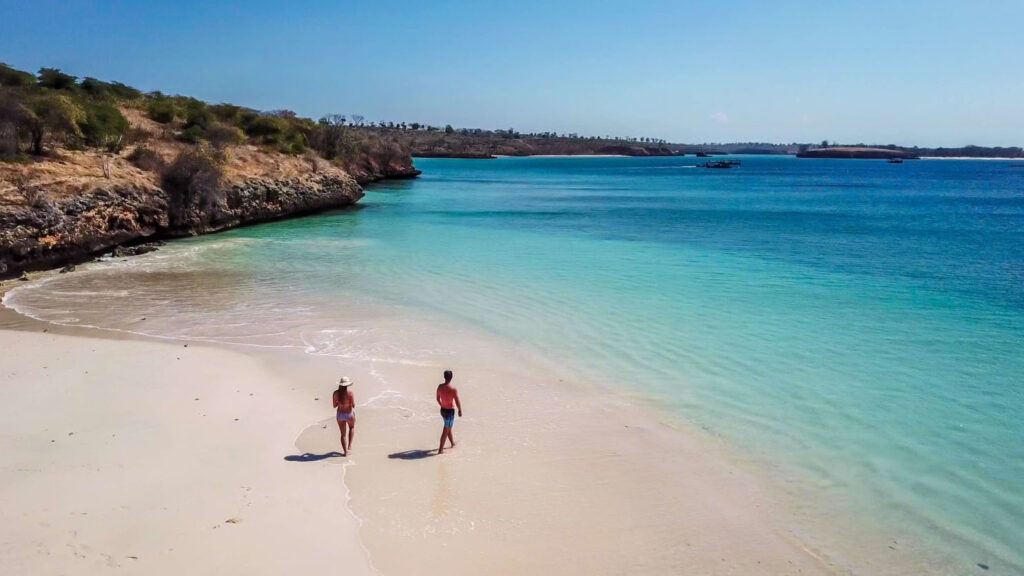
2.2 Development of New High-End Resorts and Villas
In response to the growing demand, there’s a surge in the development of luxury accommodations across the archipelago. Regions like Komodo Island and Raja Ampat are witnessing the establishment of eco-friendly resorts that offer unparalleled luxury while preserving the natural environment. These developments aim to provide guests with immersive experiences, from private beach dinners to guided dives in some of the world’s most biodiverse waters.
3. Sustainable and Eco-Friendly Tourism
3.1 Rise of Eco-Luxury Accommodations
Modern luxury travelers are increasingly prioritizing sustainability. Indonesia is embracing this shift by promoting eco-luxury accommodations that minimize environmental impact. Resorts are integrating sustainable practices, such as using renewable energy sources, implementing waste reduction programs, and sourcing materials locally. This approach not only caters to the eco-conscious traveler but also ensures the preservation of Indonesia’s natural beauty for future generations.
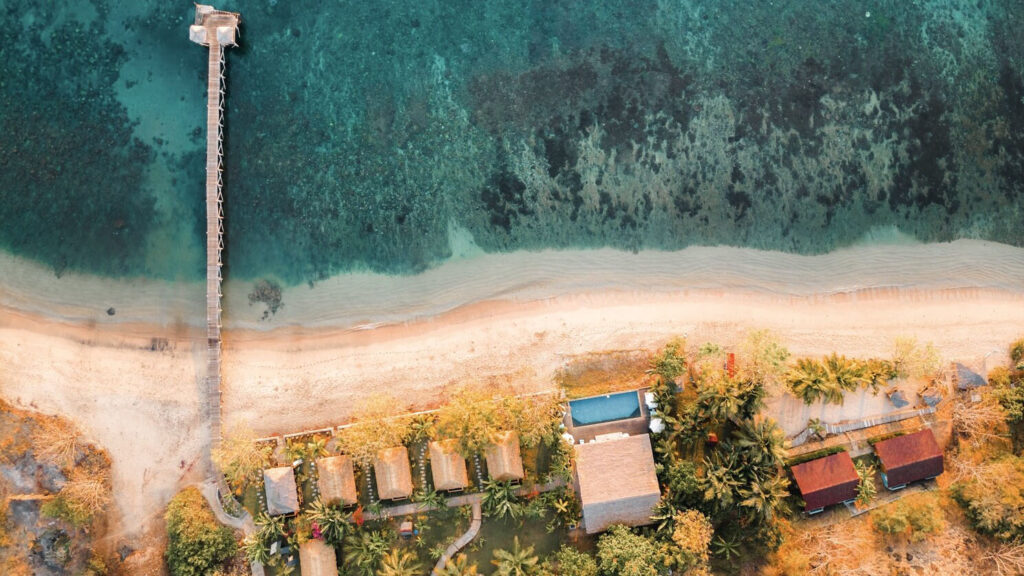
3.2 Initiatives Promoting Environmental Conservation
Beyond accommodations, various initiatives are underway to promote environmental conservation. Collaborative efforts between the government, NGOs, and private enterprises focus on preserving marine ecosystems, protecting endangered species, and promoting sustainable tourism practices. For instance, marine conservation programs in Raja Ampat aim to protect coral reefs while offering travelers the opportunity to engage in responsible diving activities.
4. Technological Innovations in Luxury Travel
4.1 Integration of Smart Technologies in Hospitality
The fusion of technology and hospitality is redefining luxury travel in Indonesia. High-end resorts are incorporating smart technologies to enhance guest experiences. From personalized room settings controlled via smartphones to AI-driven concierge services that anticipate guest needs, technology is elevating the standard of luxury. These innovations ensure a seamless and customized stay, catering to the modern traveler’s desire for convenience and personalization.

4.2 Virtual Reality Experiences Enhancing Travel Planning
Virtual reality (VR) is transforming the way travelers plan their journeys. Luxury tour operators are offering VR previews of exclusive experiences, allowing potential guests to immerse themselves in destinations before arrival. This technology aids in crafting personalized itineraries, ensuring that travelers’ expectations align with their experiences, thereby enhancing satisfaction and anticipation.
5. Personalized and Experiential Travel
5.1 Customized Itineraries Tailored to Individual Preferences
The future of luxury travel lies in personalization. Indonesia’s travel providers are curating bespoke itineraries that cater to individual preferences, whether it’s a private culinary tour in Yogyakarta or an exclusive cultural immersion in Toraja. This tailored approach ensures that each journey is unique, reflecting the traveler’s interests and desires.
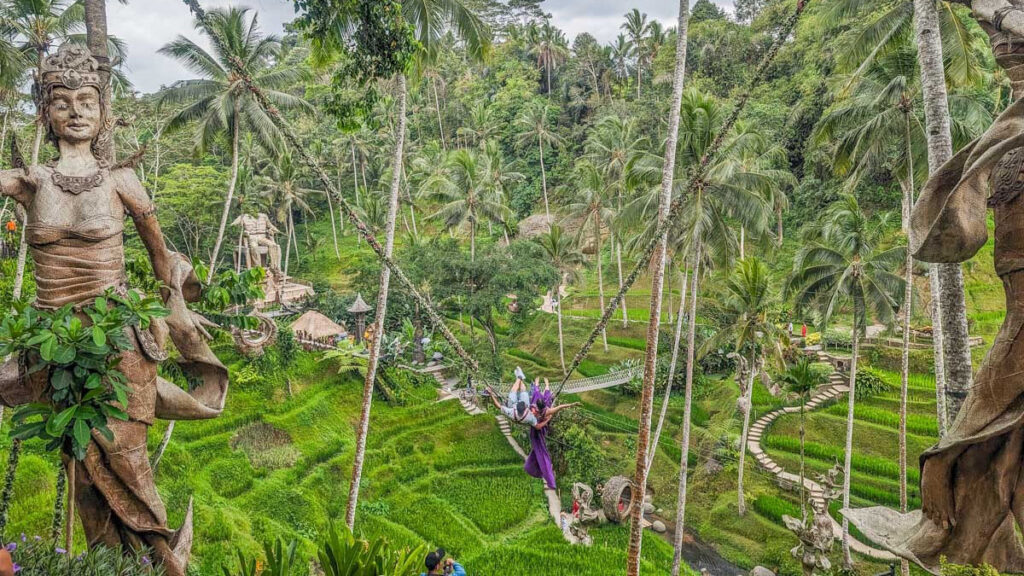
5.2 Immersive Cultural Experiences and Local Engagements
Travelers are seeking deeper connections with destinations. In response, luxury operators are facilitating immersive cultural experiences, such as participating in traditional Balinese ceremonies or learning the art of batik in Java. Engaging
6. Wellness and Holistic Retreats
6.1 Growth of Wellness-Focused Luxury Resorts
The demand for wellness tourism is at an all-time high, and Indonesia is responding with an array of luxury retreats focused on holistic well-being. High-end resorts in Bali, Lombok, and Ubud are incorporating world-class spas, yoga retreats, and meditation centers designed to offer rejuvenation. These sanctuaries blend luxury with healing traditions, providing travelers with restorative experiences set against Indonesia’s breathtaking landscapes.
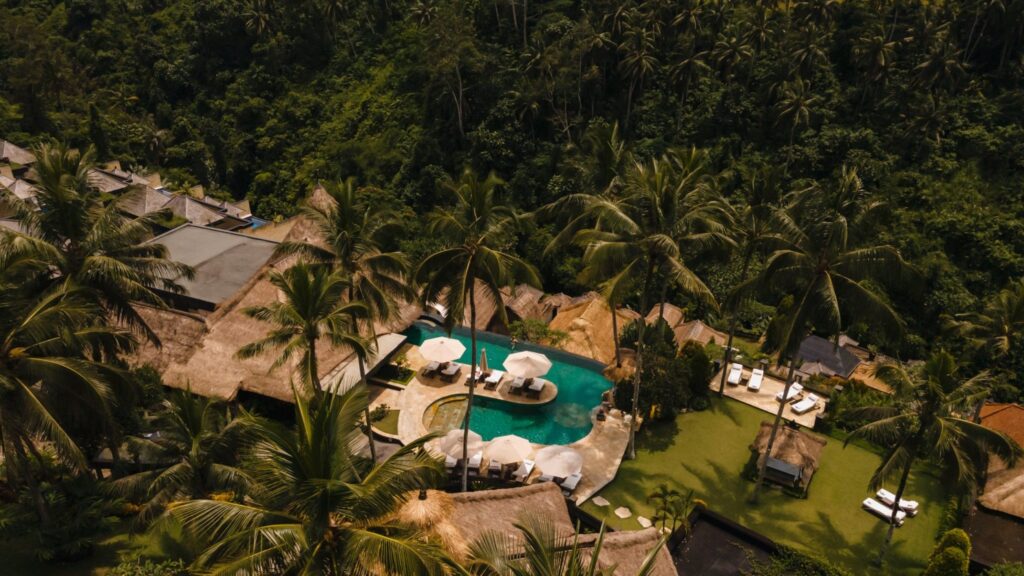
6.2 Incorporation of Traditional Indonesian Healing Practices
Indonesia’s rich heritage of traditional medicine is influencing the luxury wellness industry. High-end resorts now offer Jamu (herbal medicine) detox programs, Balinese healing rituals, and deep-tissue massages inspired by centuries-old practices. The integration of these indigenous therapies into modern wellness treatments sets Indonesia apart as a global leader in luxury wellness tourism.
7. Culinary Tourism and Gastronomic Experiences
7.1 Emergence of Gourmet Dining Destinations
Luxury travelers in 2025 and beyond will be drawn to Indonesia’s evolving fine dining scene. Cities like Jakarta and Bali are witnessing a rise in Michelin-star-level restaurants, led by world-renowned chefs who blend Indonesian flavors with international techniques. Gastronomic tourism is becoming a key driver of luxury travel, with curated dining experiences that showcase the country’s diverse culinary heritage.
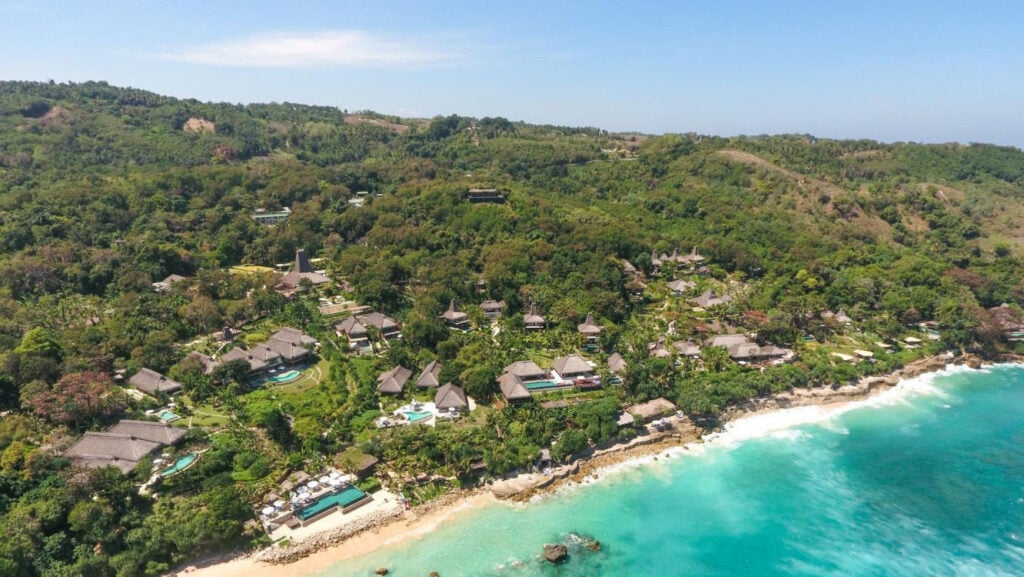
7.2 Fusion of Traditional and Modern Indonesian Cuisine
Luxury dining experiences in Indonesia are moving beyond conventional menus. Top chefs are reinventing traditional dishes, such as rendang and sate, by infusing them with contemporary cooking methods and presentation styles. Additionally, immersive dining experiences, such as farm-to-table meals in rural villages and seafood feasts on private islands, are offering travelers an unforgettable taste of Indonesia.
8. Adventure and Exploration in Luxury
8.1 Exclusive Access to Remote Natural Wonders
Luxury adventure tourism is on the rise, with ultra-high-net-worth individuals seeking exclusive experiences in Indonesia’s pristine landscapes. Private yacht charters to Komodo Island, guided treks through Sumatra’s rainforests, and helicopter tours over Mount Bromo are redefining adventure travel. These experiences offer unparalleled access to Indonesia’s most stunning locations with all the comforts of luxury.
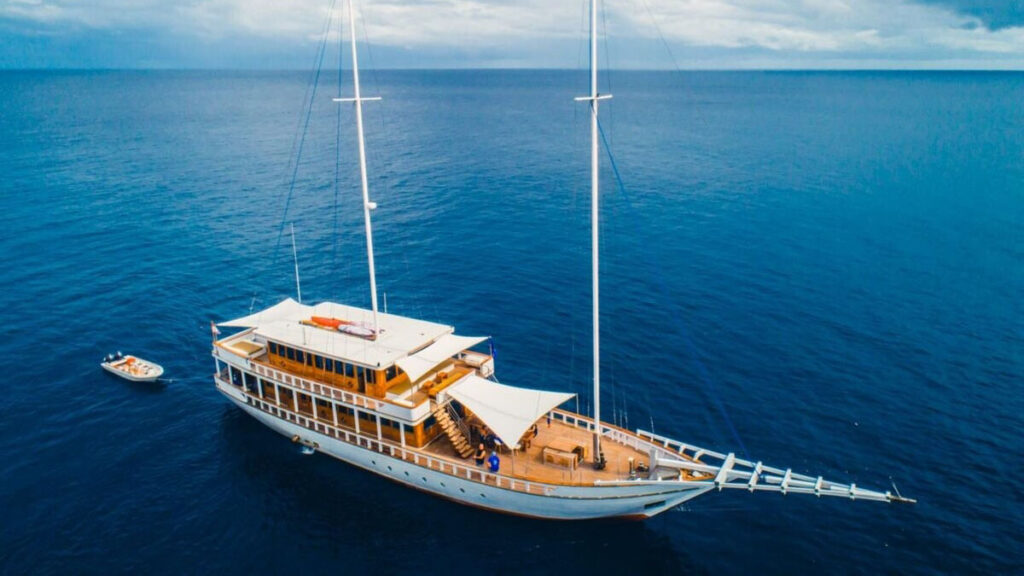
8.2 Luxury Adventure Tours and Expeditions
For thrill-seekers, Indonesia is offering luxury adventure packages that blend adrenaline-pumping activities with five-star service. Think glamping in the heart of Kalimantan’s jungle, private scuba diving expeditions in Raja Ampat, or staying in a floating villa while exploring Indonesia’s untouched archipelagos. These exclusive adventures allow travelers to embrace the wild while maintaining a high level of comfort and service.
For exceptional Liveaboard options you can check out Fenides Liveaboard.
9. Cultural Preservation and Authenticity
9.1 Efforts to Preserve Indigenous Cultures
With the rise of luxury tourism, there’s a growing emphasis on preserving Indonesia’s rich cultural heritage. Government initiatives and private organizations are working hand in hand to support local artisans, protect ancient traditions, and promote sustainable tourism practices that benefit indigenous communities. Luxury travelers are increasingly seeking experiences that allow them to engage with and support these cultural preservation efforts.
9.2 Authentic Cultural Performances and Artisanal Crafts
Luxury travelers in 2025 and beyond can expect more intimate, immersive cultural experiences. Private dance performances, exclusive access to historic sites, and hands-on workshops with local artisans—such as batik making in Yogyakarta or wood carving in Bali—are enriching the luxury travel landscape. These experiences not only provide authenticity but also contribute to the sustainability of traditional arts and crafts.

10. Impact of Global Events on Luxury Travel
10.1 Adaptations Post-Pandemic
As the world continues to adjust to the post-pandemic travel landscape, luxury tourism in Indonesia is focusing on safety, privacy, and exclusivity. Personalized travel experiences, private villa rentals, and secluded getaways are becoming the preferred choices for affluent travelers looking for both luxury and security.
10.2 Influence of International Relations on Tourism
Government policies, visa regulations, and international relations will play a crucial role in shaping Indonesia’s luxury travel sector. The push for more seamless travel experiences—including streamlined visa applications, enhanced airport services, and VIP fast-track options—will make Indonesia even more appealing to the high-end traveler.
11. Investment in Infrastructure and Accessibility
11.1 Development of New Airports and Transportation Networks
The Indonesian government is investing heavily in infrastructure to accommodate the influx of luxury travelers. New airports and upgraded transportation networks are making remote destinations more accessible. Areas like Labuan Bajo, home to Komodo National Park, are seeing significant improvements in connectivity, allowing luxury travelers to reach pristine locations more comfortably.
11.2 Enhancements in Connectivity to Remote Areas
The rise of luxury tourism is driving enhancements in connectivity. Luxury seaplanes, private helicopters, and high-speed ferries are being introduced to provide seamless access to Indonesia’s most secluded destinations. These advancements ensure that high-end travelers can explore the country’s remote wonders without compromising on comfort.
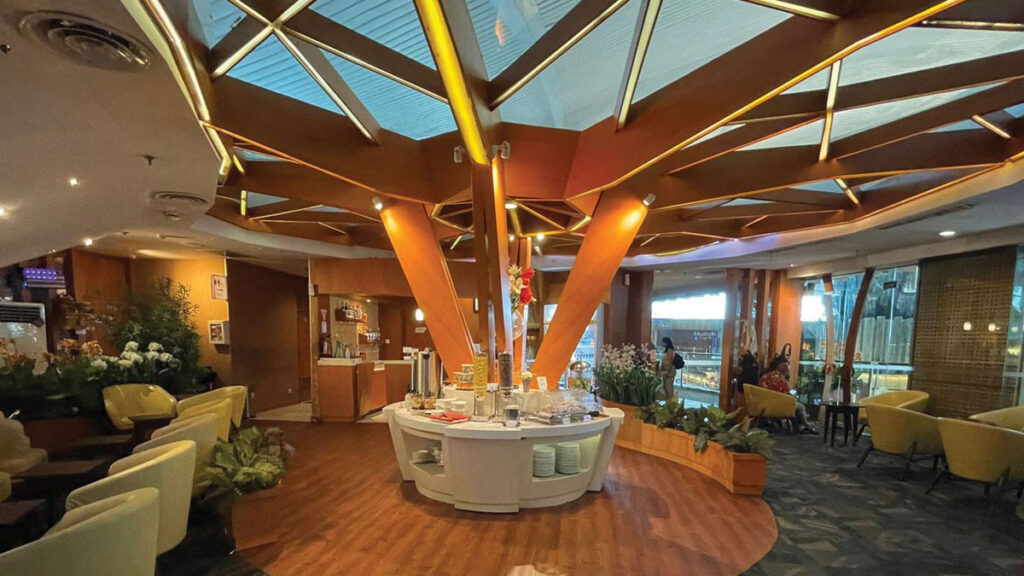
12. Challenges Facing Luxury Tourism
12.1 Balancing Development with Environmental Sustainability
One of the biggest challenges facing luxury tourism in Indonesia is the need to balance economic growth with environmental preservation. While new resorts and high-end infrastructure boost tourism revenue, there is a pressing need to implement sustainable practices that minimize ecological damage.
12.2 Addressing Overcrowding and Maintaining Exclusivity
Popular luxury destinations such as Bali are facing challenges related to overcrowding. To maintain exclusivity, high-end resorts and tourism boards are exploring strategies such as limiting visitor numbers, introducing conservation fees, and promoting alternative destinations to distribute tourist flow more evenly.
13. Future Trends in Luxury Accommodations
13.1 Rise of Private Villas and Boutique Hotels
Rather than traditional five-star hotels, luxury travelers are increasingly opting for private villas and boutique resorts that offer personalized services. The demand for secluded, high-end accommodations with private chefs, infinity pools, and exclusive beachfront access is expected to rise in 2025 and beyond.
13.2 Innovations in Design and Guest Experience
Luxury hotels and resorts in Indonesia are pushing the boundaries of innovation, offering unique architectural designs and immersive experiences. Underwater hotels, treehouse-style retreats, and floating villas are becoming sought-after accommodations, providing travelers with once-in-a-lifetime stays that merge luxury with nature.
14. Role of Local Communities in Luxury Tourism
14.1 Community-Based Tourism Initiatives
Sustainable luxury tourism is increasingly focusing on benefiting local communities. Resorts and travel companies are partnering with local entrepreneurs to provide authentic experiences while ensuring economic benefits remain within the community.
14.2 Empowerment and Inclusion of Local Populations
Many luxury travel providers are now prioritizing social responsibility by hiring local staff, sourcing local products, and supporting cultural initiatives. Travelers are becoming more conscious of their impact, seeking meaningful experiences that contribute positively to the destinations they visit.
Eco and Sustainability in Indonesia with Kija Travel
15. Conclusion
15.1 Recap of Key Developments
Indonesia’s luxury travel sector is set for remarkable growth in 2025 and beyond, with emerging destinations, sustainable tourism practices, personalized experiences, and cutting-edge technology shaping the future. The emphasis on exclusivity, authenticity, and environmental consciousness ensures that high-end travelers can enjoy Indonesia’s beauty without compromising its cultural and natural heritage.
15.2 Outlook for Indonesia’s Luxury Travel Beyond 2025
As Indonesia continues to evolve as a premier luxury destination, the future looks promising for travelers seeking unparalleled experiences. Whether it’s a private island retreat, an immersive cultural journey, or an adrenaline-fueled luxury adventure, Indonesia’s high-end tourism landscape is poised to captivate and inspire the world’s most discerning travelers.

